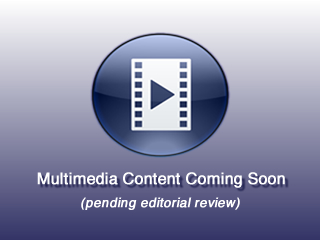Newswise — RESEARCH TRIANGLE PARK, N.C. – Although using social media and peer-to-peer networks to spread information about health and science may now seem like a sound strategy, a new book argues that approach can reinforce disparities in learning and awareness.
The book, Social Networks and Popular Understanding of Science and Health: Sharing Disparities, illustrates how systematic reliance on social networks and peer-to-peer networks to disseminate information could be a recipe for inequity.
"We live in a moment of great faith in the notion that the best ideas will somehow spread like wildfire and that a marketer or an educator can simply release an idea into the world and just let it spread virally," said Brian Southwell, Ph.D., a senior research scientist at RTI International and the book's author. "There’s something wonderfully appealing and democratic about that notion. Unfortunately, there are also some limitations and caveats to that idea that we need to take into account, particularly when it comes to reaching socio-economically disadvantaged populations with information."
The book documents instances where efforts to disseminate science and health information through social networking or peer-to-peer networks fell short of desired outcomes. For example, Southwell recalls an effort by communicators at a public health department to target potential clients through a peer-to-peer referral program for cancer screening. While he noted the campaign had limited success among those who were relatively well-connected, it also failed to reach some of its intended population.
"Spreading ideas in this fashion is hard work," he said. "We can’t expect the viral spread of information to happen without a tremendous amount of investment or existing connections between people."
Southwell’s observations are culled from decades of research from interpersonal communication scholars, campaign evaluators and sociologists from a wide array of disciplines.The book has generated early review praise from researchers around the world. "Southwell eloquently explains what few will have realized: that the explosion of opportunities to share knowledge through social media appears to exacerbate disparities in public understanding of health and science, rather than level the field," said Melanie Wakefield, director, Centre for Behavioural Research in Cancer, Cancer Council Victoria, Melbourne, Australia. "He challenges us to think more deeply about strategies for public communication that would prevent those most socio-economically disadvantaged from being left even further behind."
In addition to his position at RTI, Southwell also currently holds faculty appointments at the University of North Carolina at Chapel Hill and Duke University. Prior to moving to North Carolina, Southwell served almost a decade at the University of Minnesota and also has worked for a variety of nonprofit and government organizations.
The book, co-published by RTI Press and Johns Hopkins University Press, is intended for general audiences and for communication professionals, policymakers and others interested in viral marketing campaigns and public understanding of science and health.
Southwell will kick off a series of discussions about the book by signing copies and reading an excerpt at The Regulator Bookshop in Durham, N.C., Sept. 25 at 7 p.m.
Social Networks and Popular Understanding of Science and Health: Sharing Disparities is available at Amazon.com.
